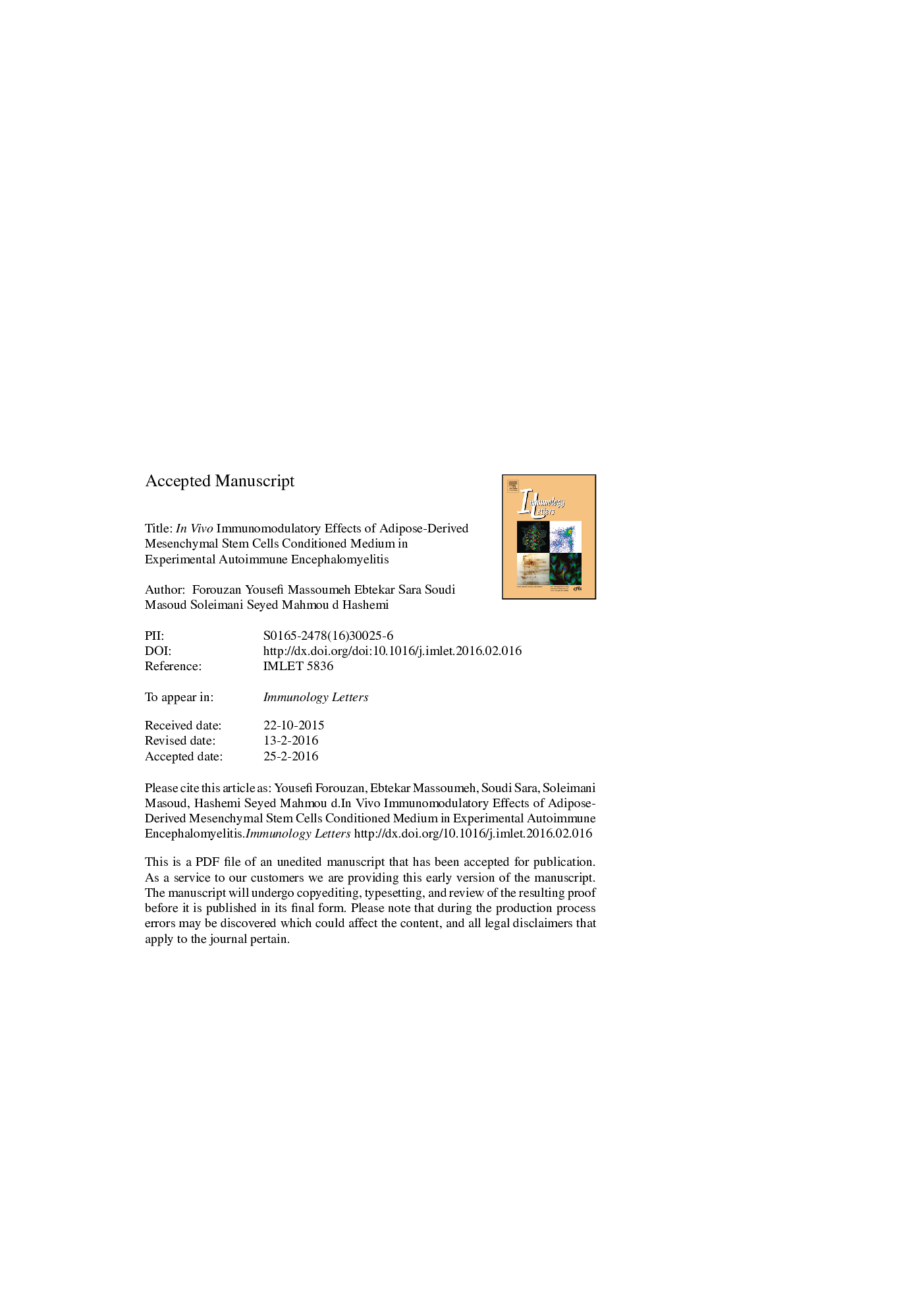| Article ID | Journal | Published Year | Pages | File Type |
|---|---|---|---|---|
| 6116998 | Immunology Letters | 2016 | 36 Pages |
Abstract
Mesenchymal stem cells (MSCs) are well known to possess neuroprotective and immunomodulatory effects, due to cell-to-cell interaction and their soluble factors. We conducted a comparative analysis of the immunomodulatory properties of adipose tissue mesenchymal stem cells (AT-MSCs) and their conditioned media (CM), derived from C57/BL6 mice, for mitigating the adverse clinical course of experimental autoimmune encephalomyelitis (EAE). We measure IL4, IL17 and IFNÉ£ production of supernatant from spleen cells. We analyzed brain cell infiltration, splenocyte proliferation and evaluated the percentage of CD4Â +Â CD25Â +Â FOXP3Â +Â splenic cell population in all EAE C57/BL6 mice. AT-MSCs and its conditioned medium induced CD4Â +Â CD25Â +Â FOXP3Â +Â regulatory T cells after in vitro co-culture with naïve T cells. There is no significant difference in the clinical scores and body weight of EAE mice treated with AT-MSCs and CM. The reduction in proliferative responses and brain cell infiltration was more pronounced in mice injected with CM than other groups. It is found that the percentage of splenic CD4Â +Â CD25Â +Â FOXP3+ population as well as the level of IL4 production in mice administrated with AT-MSCs is increased compared to other animals. Our results suggest that AT-MSCs-derived CM is promising in stem cell therapy, due to their neuroprotective and immunomudulatory properties.
Related Topics
Life Sciences
Immunology and Microbiology
Immunology
Authors
Forouzan Yousefi, Massoumeh Ebtekar, Sara Soudi, Masoud Soleimani, Seyed Mahmoud Hashemi,
